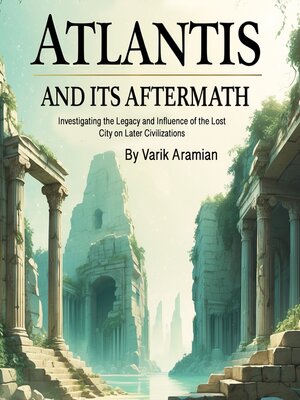Atlantis and Its Aftermath
audiobook (Unabridged) ∣ Investigating the Legacy and Influence of the Lost City on Later Civilizations
By Varik Aramian

Sign up to save your library
With an OverDrive account, you can save your favorite libraries for at-a-glance information about availability. Find out more about OverDrive accounts.
Find this title in Libby, the library reading app by OverDrive.



Search for a digital library with this title
Title found at these libraries:
| Library Name | Distance |
|---|---|
| Loading... |
This audiobook is narrated by a digital voice.
The story of Atlantis has captivated human imagination for over two millennia, yet its influence extends far beyond the realm of myth and legend. What began as a philosophical allegory in Plato's dialogues has evolved into one of history's most enduring mysteries, shaping not only popular culture but also archaeological pursuits, political ideologies, and even scientific inquiry. The tale of a technologically advanced civilization that vanished beneath the waves has become a cultural touchstone, inspiring countless expeditions, theories, and artistic works while simultaneously serving as a mirror for humanity's greatest aspirations and deepest fears.
Plato first introduced Atlantis around 360 BCE in his dialogues "Timaeus" and "Critias," describing a powerful maritime empire that existed nine thousand years before his own time. According to his account, Atlantis was an island larger than Libya and Asia combined, situated beyond the Pillars of Hercules in the Atlantic Ocean. The Atlanteans possessed advanced technology, sophisticated architecture, and a highly organized society ruled by ten kings descended from the sea god Poseidon. However, their moral decay and aggressive expansion ultimately led to their divine punishment and catastrophic destruction in a single day and night.
While many scholars consider Plato's Atlantis to be purely allegorical, designed to illustrate his ideas about ideal governance and the dangers of hubris, the story has taken on a life of its own throughout history. The concept of a lost advanced civilization has resonated across cultures and epochs, appearing in various forms in different traditions and mythologies. From the Sumerian tales of antediluvian cities to Hindu accounts of Dwarka, from Celtic legends of sunken lands to Native American stories of great floods, similar narratives appear worldwide, suggesting either a common human archetype or perhaps distant memories of actual catastrophic events.







